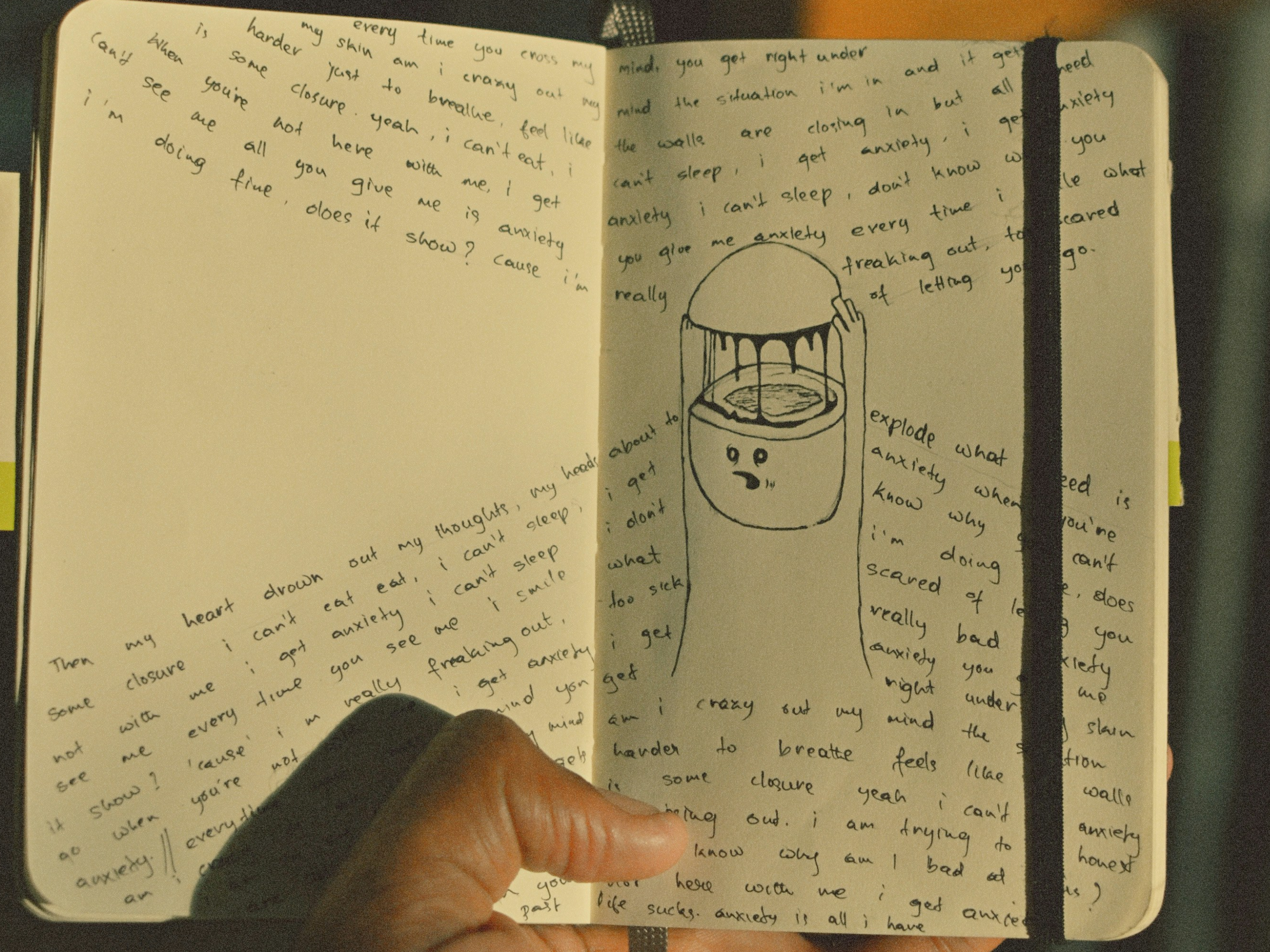These days experiencing anxiety is almost inevitable. We all have moments of worry, whether it’s about work deadlines, health concerns, or personal relationships. These anxious thoughts, while often distressing, are generally manageable and tend to resolve once the stressor is removed. However, for some individuals, these thoughts become overwhelming, and persistent, and lead to compulsive behaviors, a condition known as Obsessive-Compulsive Disorder (OCD). While both anxious thoughts and OCD thoughts share similarities, understanding their differences is crucial for recognizing when it might be time to seek professional help.
Anxiety and OCD are both mental health conditions that can significantly impair an individual’s quality of life. Anxiety disorders are the most common mental illnesses in the United States, affecting 18.1% of adults each year. Generalized Anxiety Disorder (GAD), a common type of anxiety disorder, affects 6.8 million adults in the U.S. annually. In comparison, OCD, though less common, affects about 1-2% of the population worldwide. Both conditions can coexist and often share symptoms, but their management and treatment strategies can differ significantly. (National Institute of Mental Health, 2024)
This blog post aims to delineate the differences between anxious thoughts and OCD thoughts, provide tips for managing these thoughts, and offer guidance on when to seek professional help. Whether you’re personally dealing with these issues or looking to support someone who is, this guide will equip you with valuable insights and practical advice based on scientific research and clinical experience.
Anxious Thoughts
Anxious thoughts are a normal part of the human experience and typically arise in response to stressors. They are characterized by:
- Situational and Proportional: Anxious thoughts are usually directly related to specific situations or stressors and are proportional to the circumstances. For example, worrying about an upcoming presentation at work is a typical anxious thought.
- Transient: Anxious thoughts often come and go, usually dissipating once the stressor is resolved or when the individual engages in other activities.
- Manageable: While distressing, anxious thoughts are generally manageable through self-care strategies, such as relaxation techniques, exercise, or talking to a friend.
- Less Interfering: Although bothersome, anxious thoughts typically do not significantly interfere with daily functioning or lead to compulsive behaviors.
Tips for Managing Anxious Thoughts
- Practice Mindfulness: Mindfulness techniques, such as deep breathing and meditation, can help you stay grounded and reduce anxiety. Studies have shown that mindfulness-based stress reduction (MBSR) can significantly decrease anxiety levels. (Duke Integrative Medicine, 2023)
- Stay Active: Regular physical activity is known to reduce anxiety. Exercise increases endorphins, which help improve mood and reduce stress.
- Establish a Routine: Having a daily routine can provide a sense of normalcy and control, helping to mitigate anxious thoughts.
- Limit Caffeine and Alcohol: Both substances can exacerbate anxiety symptoms. Reducing intake can help manage anxiety more effectively.
OCD Thoughts
OCD thoughts, or obsessions, are a hallmark of Obsessive-Compulsive Disorder. They differ from typical anxious thoughts in several key ways:
- Intrusive and Unwanted: OCD thoughts are intrusive and unwanted, often causing significant distress and anxiety. They can be irrational or disturbing, such as fears of contamination, harming others, or doubts about one’s morality.
- Persistent: Unlike anxious thoughts, OCD thoughts are persistent and recurrent, often lingering even when there is no immediate stressor or logical reason for concern.
- Compulsive Behaviors: OCD thoughts often lead to compulsive behaviors or mental rituals aimed at reducing the distress caused by the obsessions. These behaviors can include excessive cleaning, checking, counting, or seeking reassurance.
- Significant Interference: OCD thoughts and compulsions can significantly interfere with daily functioning, affecting work, relationships, and overall quality of life. They can be time-consuming and exhausting.
Scientific Facts and Statistics
- Impact on Daily Life: OCD can be highly disabling. The World Health Organization ranks OCD in the top 10 of the most disabling illnesses in terms of lost income and decreased quality of life.
- Comorbidity: OCD often coexists with other mental health conditions, such as anxiety disorders, depression, and eating disorders. Approximately 90% of individuals with OCD also have at least one other mental disorder.
- Age of Onset: OCD typically begins in childhood, adolescence, or early adulthood. The average age of onset is 19, with 25% of cases starting by age 14.
When to Seek Therapy or Professional Help
Determining when to seek professional help is crucial for managing both anxiety and OCD effectively. Here are some guidelines:
- Severity and Duration: If your anxious thoughts or OCD thoughts are severe, persistent, and have lasted for more than a few weeks, it may be time to seek help. Persistent symptoms that do not improve with self-care strategies warrant professional attention.
- Impact on Daily Functioning: If your thoughts are significantly interfering with your daily life, work, or relationships, it’s important to seek help. This is especially true if you find yourself avoiding activities, struggling to perform daily tasks, or if compulsions take up a lot of time.
- Distress and Suffering: If your thoughts are causing significant distress, suffering, or emotional pain, professional help can provide relief and support. Emotional well-being is crucial, and seeking help is a proactive step towards improving your mental health.
- Ineffectiveness of Self-Help: If self-help strategies (e.g., relaxation techniques, exercise, talking to friends or family) are not alleviating your symptoms, it may be time to consult a mental health professional.
Treatment Options
Both anxiety and OCD can be effectively treated with professional help. Common treatment options include:
- Cognitive Behavioral Therapy (CBT): CBT is highly effective for both anxiety and OCD. It involves identifying and challenging irrational thoughts and behaviors and developing healthier coping strategies. For OCD, a specific form of CBT called Exposure and Response Prevention (ERP) is particularly effective.
- Medication: Medications, such as selective serotonin reuptake inhibitors (SSRIs), can help manage symptoms of both anxiety and OCD. A healthcare provider can assess your situation and determine if your medication is appropriate.
- Mindfulness and Relaxation Techniques: Mindfulness-based therapies and relaxation techniques can help manage symptoms by promoting calm and reducing intrusive thoughts’ intensity.
- Support Groups: Joining a support group can provide a sense of community and shared experience. Support groups offer emotional support and practical advice from others who understand what you’re going through.
- Professional Counseling: Individual or group counseling with a licensed therapist can provide personalized support and strategies for managing symptoms.
Understanding the difference between anxious thoughts and OCD thoughts is essential for recognizing when professional help is needed. While anxious thoughts are a normal part of life, OCD thoughts are more intense, and persistent, and often lead to compulsive behaviors that can significantly interfere with daily functioning. If you or someone you know is struggling with anxiety or OCD, seeking professional help can lead to effective treatment and improved quality of life. Remember, reaching out for help is a sign of strength, and taking steps to address your mental health can lead to a healthier, more fulfilling life.
References
Duke Integrative Medicine. (2023, July 14). The Benefits of the Mindfulness-Based Stress Reduction Program – DHW Blog. DHW Blog. Retrieved August 27, 2024, from https://dhwblog.dukehealth.org/the-benefits-of-the-mindfulness-based-stress-reduction-program/
National Institute of Mental Health. (2024, April). Anxiety Disorders – National Institute of Mental Health (NIMH). National Institute of Mental Health. Retrieved August 27, 2024, from https://www.nimh.nih.gov/health/topics/anxiety-disorders




